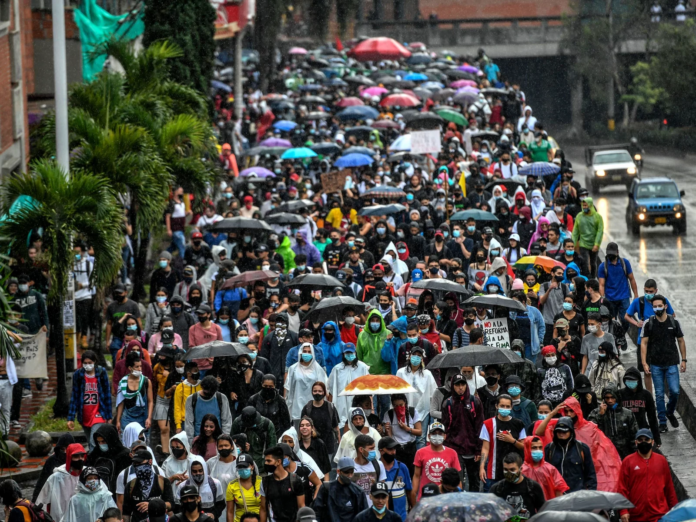By Maler Suresh
At least 42 people have died so far in ongoing protests across Colombia. The protests began on April 28th as demonstrations against a new economic policy proposed by President Iván Duque that was meant to address the country’s pandemic-related economic deficit. However, the proposal to increase taxes on household items like milk, eggs, and utilities, as well putting an income tax on those who earn more than 2.4 million Colombian pesos (about $624) a month, really became proof of the disconnect between government policies and the predicament of the working class in the eyes of the Columbian people. The protests then evolved from there, encompassing the public’s demand for a solution to the scarceness of vaccines in the country, the ever-deepening poverty and inequality, and police violence.
Soon after the protests began, President Duque said he would withdraw the current proposal and seek a new plan “borne out of consensus.” Duque, however, was clear that “The [tax] reform is not a whim,” bt “a necessity.” A day after this statement, Columbia’s finance minister resigned. Even so, the protests still continue, perhaps at an even higher intensity than before. Why? The simple answer is that protests over tax reform, combined with became the catalyst that caused social unrest over police violence, unemployment, mismanagement of the pandemic, and hunger to reach its tipping point.
As the protests continue, human rights groups are calling on the Colombian government to stop the use of excessive force by police. ESMAD ( the Colombian Mobile Anti-Riot Squad) has been blamed for the deaths of several civilians as a result of excessive force. The organization Temblores, which investigates systemic police violence, has recorded over 1200 cases of police violence and over 800 arbitrary arrests during the protests. The city of Cali, which is the epicenter of nationwide unrest, has since been militarized by the government, but protestors continue to take to the streets even amid rising COVID rates in the country, with approxiamately 18,873 new cases being reported a day.

